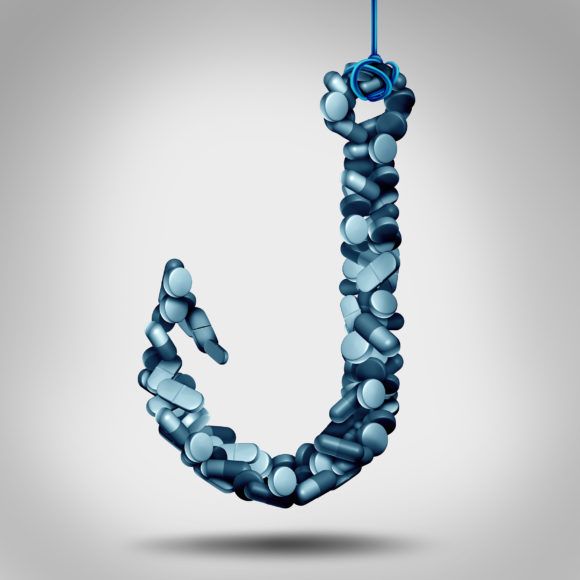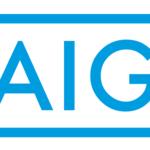Oxycontin maker Purdue Pharma LP is proposing a global settlement in an attempt to end state investigations and lawsuits over the U.S. opioid epidemic, according to people familiar with the talks.
Purdue’s lawyers raised the prospect with several southern-state attorneys general who haven’t sued the company, as they try to gauge interest for a more wide-ranging deal, said four people who asked not to be identified because the talks aren’t public.
Opioid makers are accused of creating a public-health crisis through their marketing of the painkillers. More than a dozen states and about 100 counties and cities have already sued Purdue, other opioid makers and drug distributors, in a strategy echoing the litigation that led to the 1998 $246 billion settlement with Big Tobacco.
“This sounds like the opening bid in settlement talks,” said Anthony Sabino, who teaches law at St. John’s University in New York. “It also sounds like they are trying to convince some of these state AG’s that they don’t need to bring their own suits.”
A group of 41 attorneys general are also investigating how companies like Purdue and other opioid makers marketed and sold prescription opioids. It’s not clear whether Purdue’s lawyers are authorized to speak for other drugmakers facing opioid suits, but the people familiar with the talks say Purdue’s attorneys are looking for a global accord to include all U.S. states’ claims against all manufacturers.
Robert Josephson, a Purdue spokesman, declined to comment on any settlement discussions. The company said earlier that the U.S. Food and Drug Administration approved Oxycontin for use as a painkiller, and approved the safety warnings.
Company officials with J&J, based in New Brunswick, New Jersey; Dublin-based Endo International Plc; Israel-based Teva Pharmaceutical Industries; and Allergan Plc, with headquarters in Parsippany, New Jersey, didn’t immediately return calls for comment on whether they are involved in talks.
Spokesmen for drug distributors Cardinal Health Inc. and AmerisourceBergen Corp. didn’t immediately return calls for comment on whether they are participating. A spokesman for McKesson Corp. declined to comment.
Fight in Court
Opioid makers argue in court filings that states and local governments are barred from suing because opioids are regulated by the FDA. They say judges must defer to the FDA’s finding that the painkillers are safe and effective and that companies such as Purdue properly disclosed addiction risks on warning labels.
States and municipalities disagree, saying that because the FDA doesn’t thoroughly regulate drug marketing there is a basis for suits claiming opioid makers created a public-health crisis with overly aggressive marketing.
Stamford, Connecticut-based Purdue hired Sheila Birnbaum, a veteran mass-tort defense lawyer, to help guide its legal strategy and put together a settlement game plan. She’s a partner with New York’s Quinn Emanuel Urquhart & Sullivan LLP.
Nicknamed the “Queen of Torts,” the 76-year-old Birnbaum is skilled at negotiating big-dollar settlements, including the $765 million NFL concussion settlement and an accord settling a suit against Pfizer Inc. over its hormone-replacement drugs . She also oversaw a $2.8 billion fund set up to compensate first responders and residents following the 2001 World Trade Center attacks.
“She’s been the go-to person over the years to come up with sweeping resolutions for mass-tort cases,” Carl Tobias, who teaches product-liability law at the University of Richmond in Virginia, said of Birnbaum. Birnbaum’s name is on Purdue court filings; she didn’t respond to a request for comment.
State Lawsuits
Any settlement would likely include cash, along with changes to the company’s manufacturing and marketing practices, the people said. It would resolve only the state claims, they added.
What may make an early settlement offer attractive to states is early access to money to deal with the social costs of the opioid epidemic, Sabino said. “The idea is the states wouldn’t have to go through years of discovery and trials to wind up where they could be right now — at the settlement table,” he said.
Governments could use their share of billions in settlement funds to recoup the costs of ramping up policing and drug-treatment programs.
Swain Wood, general counsel for the North Carolina Attorney General Josh Stein, told a group of county officials at a Nov. 15 seminar in Raleigh that his office was negotiating with opioid makers, according to a person who attended the meeting.
Dual-Track
Wood said his office was on a “dual-track,” engaging in settlement talks while continuing to investigate opioid makers’ activities in North Carolina, according to the person. He said the settlement proposal offered to North Carolina would resolve only the state’s claims, but could offer an opt-in right for counties, the person said.
Laura Brewer, a spokeswoman for the North Carolina Attorney General’s Office who also attended the Nov. 15 seminar, denied that Wood said his office was negotiating a settlement.
At the meeting, Wood said “our office is vigorously investigating opioid manufacturers and distributors in cooperation with many other state attorneys general,” Brewer said in an emailed statement. “At the same time, we are open to having discussions with these potential defendants to determine what role they can play in helping to resolve this crisis.”
Brewer added that Wood spoke about “multi-state settlements” in general and noted that “an opt-in for counties is one such way a settlement could be done.”
More than 60,000 people died from drug overdoses in 2016, and there was a five-fold increase in overdose deaths involving synthetic opioids — from 3,105 in 2013 to about 20,000 in 2016, according to the Centers for Disease Control.
One Judge
A study in the October 2016 issue of Medical Care Journal put the economic cost of opioid overdose, abuse and dependence at $78.5 billion. Health care accounts for about a third of that cost, while lost productivity in nonfatal cases add another $20 billion, according to the journal published by Wolters Kluwer.
Against a backdrop of early settlement talks, opioid makers are calling for 69 lawsuits pending in 15 federal courts across the U.S. to be gathered before before a single judge, according to court filings. A hearing on the multidistrict litigation request is set for Nov. 30 in St. Louis.
The companies and some plaintiffs’ lawyers are asking that opioid suits filed by states, counties and cities be combined for information exchanges and test trials. The consolidation is intended to save money by streamlining the document exchanges and avoiding duplication.
Drugmakers have suggested collecting the cases in federal court in Chicago while plaintiffs recommended that they be sent anywhere from New Hampshire to opioid-ravaged southern West Virginia, according to court filings. The city of Chicago officials filed one of the first cases against opioid makers in 2014.
The case is In Re: National Prescription Opioid Litigation, MDL NO. 2804, Before the U.S. Judicial Panel on Multidistrict Litigation (Washington).
Topics Lawsuits USA Claims North Carolina
Was this article valuable?
Here are more articles you may enjoy.



 Allstate Says It’s Ready to Grow Homeowners Line With All 3 Distribution Channels
Allstate Says It’s Ready to Grow Homeowners Line With All 3 Distribution Channels  AIG General Insurance Underwriting Profit Falls 28% in Q3
AIG General Insurance Underwriting Profit Falls 28% in Q3  St. Pete to Spend Millions on Stadium After Reducing Insurance Coverage This Year
St. Pete to Spend Millions on Stadium After Reducing Insurance Coverage This Year  AIG CEO Zaffino on Approach to Catastrophe Losses in Today’s Reinsurance Market
AIG CEO Zaffino on Approach to Catastrophe Losses in Today’s Reinsurance Market 

